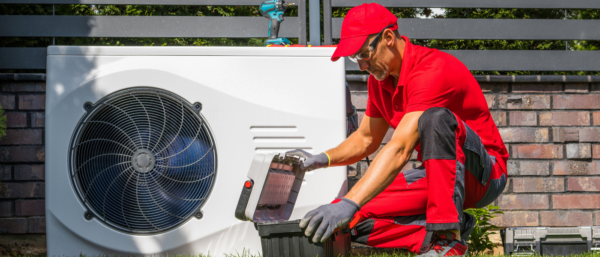Boiler Upgrade Scheme: My Personal Experience.

Article written by Samuel Lott, Energy Data Consultant at Sava, about his personal experience with the Boiler Upgrade Scheme.
The Boiler Upgrade Scheme (BUS) is a Government initiative designed to encourage the replacement of fossil fuel heating systems with low-carbon alternatives such as heat pumps and biomass boilers. Initially, the grant was £5,000, but recent changes have increased it to £7,500 for heat pumps, making it more appealing and accessible to homeowners and small businesses.
Why was the BUS introduced?
The scheme aims to decarbonise homes and small non-domestic buildings, supporting the UK’s climate goals of reducing greenhouse gas emissions. By providing upfront capital grants, the BUS helps mitigate the high initial costs of installing these systems, promoting the widespread adoption of low-carbon heating technologies. Reducing reliance on fossil fuels is crucial for achieving a sustainable future, and initiatives like the BUS are vital in this transition.
My personal experience with the BUS
During a recent renovation project, I decided to take advantage of the BUS to install an air source heat pump. The renovation involved major structural changes, including reconfiguring walls and replacing flooring, which allowed us to implement underfloor heating throughout the house — a perfect match for an air source heat pump. However, the journey was not without its challenges. Initially, information on the BUS was scarce, and finding qualified installers was difficult. The scheme requires an installer to apply for the grant on behalf of the homeowner, adding an extra layer of complexity. After extensive searching, we found an installer, only to face further challenges.
One of the early requirements of the BUS was to ensure the property had a valid Energy Performance Certificate (EPC) with no outstanding recommendations for loft and cavity wall insulation. This meant we had to install these measures immediately to qualify for the grant, a task made more difficult by our ongoing renovations. For example, manufacturing delays left us without windows in some parts of the property, requiring temporary measures like covering openings with MDF boards while we installed cavity wall insulation.
Despite these hurdles, we managed to install the heat pump, though not without significant effort and additional costs.
Changes to the Boiler Upgrade Scheme (BUS)
In the summer of 2023, Government held a consultation to seek views on proposed changes to the BUS to encourage greater uptake of low-carbon heating systems and provide a simpler consumer offer.
On 14 March 2024, the Department for Energy Security and Net Zero (DESNZ) announced significant changes to the BUS based on the consultation responses. These changes came into force on 8th May 2024.
In summary, the BUS changes:
- EPC Requirements Adjusted: The requirement for a valid EPC generated in the last 10 years remains, but the need to have no outstanding recommendations for loft and cavity wall insulation has been removed. This change allows homeowners to complete these improvements at a more convenient time, reducing upfront costs and delays.
- Future-Proofing Regulations: The regulations now differentiate grant levels for properties off the gas grid and self-build properties. While the Government does not currently intend to vary these grant levels, they have the flexibility to do so in the future if necessary.
- Newly Eligible Systems: Biomass boilers with an integrated cooking function are now eligible for support.
- Increased Threshold for Shared Ground Loops: For ground source heat pumps, the threshold for shared ground loops has increased from 45kW to 300kW, though the threshold for a single installation remains at 45kW.
- Commissioning Dates: An application will not be eligible if made for a system commissioned more than 120 days ahead of the application. Previously, any system installed after the scheme launch was eligible.
You can find more information on changes to the BUS on the OfGem website.
Challenges with the Scheme
Despite the improvements, several issues still require addressing to accelerate the adoption and promotion of heat pumps:
- Double EPC Evaluation: The process may require multiple EPC evaluations, adding to the complexity and cost. If an EPC does not exist before the works, consumers will need to pay for two EPCs: one before the grant can be applied for, and one after the works to accurately reflect the changes in the property.
- Installer Dependence: The scheme relies heavily on certified installers, limiting flexibility and potentially leading to higher costs or delays in finding an available installer. Addressing the skills gap in this sector is crucial for the high adoption of this technology moving forward.
- No Retrofit Support: The scheme does not cover the costs of other necessary preparatory energy efficiency upgrades, such as insulation, which can be a significant financial burden.
- Lack of Clarity and Support: Navigating the application process can be complex, with limited guidance available. Homeowners often face bureaucratic hurdles with little support, leading to potential errors and further delays.
So, is the Boiler Upgrade Scheme worthwhile?
The Boiler Upgrade Scheme is a positive step towards promoting low-carbon heating solutions, but its implementation could be significantly improved. Addressing the issues related to EPC requirements and providing more comprehensive support for necessary fabric improvements would make the scheme more effective and accessible. By sharing personal experiences and highlighting these areas, we can advocate for a more user-friendly approach that better supports homeowners in transitioning to sustainable energy solutions.